
Overlea is an unincorporated community and census-designated place in Baltimore County, Maryland, United States. The population was 12,275 at the 2010 census. Students attend Overlea High School. Area roads include Belair Road and Kenwood Avenue.

Michael Tilson Thomas is an American conductor, pianist and composer. He is Artistic Director Laureate of the New World Symphony, an American orchestral academy based in Miami Beach, Florida, Music Director Laureate of the San Francisco Symphony, and Conductor Laureate of the London Symphony Orchestra.

Yiddish theatre consists of plays written and performed primarily by Jews in Yiddish, the language of the Central European Ashkenazi Jewish community. The range of Yiddish theatre is broad: operetta, musical comedy, and satiric or nostalgic revues; melodrama; naturalist drama; expressionist and modernist plays. At its height, its geographical scope was comparably broad: from the late 19th century until just before World War II, professional Yiddish theatre could be found throughout the heavily Jewish areas of Eastern and East Central Europe, but also in Berlin, London, Paris, Buenos Aires and New York City.
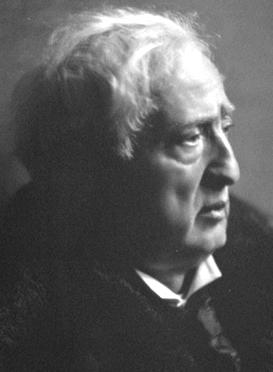
Jacob Pavlovich Adler was a Jewish actor and star of Yiddish theater, first in Odessa, and later in London and in New York City's Yiddish Theater District.
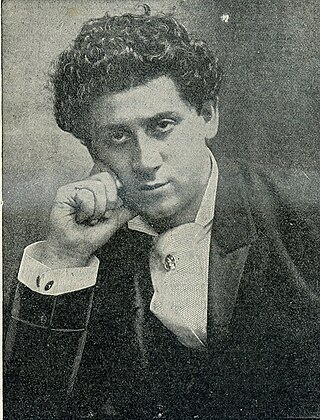
Boris Thomashefsky, born Boruch-Aharon Thomashefsky, was a Ukrainian-born Jewish singer and actor who became one of the biggest stars in Yiddish theater.

David Kessler (1860–1920) was a prominent actor in the first great era of Yiddish theater. As a star Yiddish dramatic performer in New York City, he was the first leading man in Yiddish theater to dispense with incidental music.

Bessie Thomashefsky, born Briche Baumfeld-Kaufman, was a Russian-born Jewish American singer, actress and comedian, a star in Yiddish theater beginning in the 1890s. She was the wife and stage partner of Boris Thomashefsky, the most popular Yiddish leading man of his era. Probably her most famous role was the title role of Oscar Wilde's Salomé at the People’s Theater in 1908.

Heinz Hall is a performing arts center and concert hall located at 600 Penn Avenue in the Cultural District of Pittsburgh, Pennsylvania. Home to the Pittsburgh Symphony Orchestra (PSO) and the Pittsburgh Youth Symphony Orchestra, the 2,676 seat hall presents about 200 performances each year. Originally built in 1927 as Loew's Penn Theatre, the former movie palace was renovated and reopened as Heinz Hall in 1971.
The National Great Blacks in Wax Museum is a wax museum in Baltimore, Maryland featuring prominent African-American and other black historical figures. It was established in 1983, in a downtown storefront on Saratoga Street.

Pesach "Peishachke" Burstein was a Polish-born American comedian, singer, coupletist, and director of Yiddish vaudeville/theater. He was honored with the Itzik Manger Prize in 1986. His wife Lillian Lux, and son Mike Burstyn are also actors.
The Holliday Street Theater also known as the New Theatre, New Holliday, Old Holliday, The Baltimore Theatre, and Old Drury, was a historical theatrical venue in Federal Period Baltimore, Maryland. It is known for showing the first performance of Francis Scott Key's "The Star-Spangled Banner".
The Maryland Theater was a music venue in Baltimore, Maryland, home to that city's first jazz band, led by John Ridgely. It was originally built for James Lawrence Kernan (1838-1912) as a vaudeville house, in 1903, adjacent to his Hotel Kernan. It included a rathskeller in the basement with some of the first music in town from a "jazz band" led by John Ridgley, at what became known later as "The Marble Bar", a musical venue even up to the 1980s. Located facing West Franklin Street, between North Paca Street and west of North Howard Street, which was one of the fanciest hotels in the city at the time constructed of Beaux Arts/Classical Revival style architecture. Unfortunately, in the 1950s, the old Maryland Theatre was razed and temporarily replaced by a parking lot for the last days of the hotel.

War Memorial Plaza is a public square, small park and space in Downtown Baltimore between City Hall and the War Memorial Building, between Holliday Street on the west, East Fayette Street on the south, North Gay Street on the east, and East Lexington Street on the north.
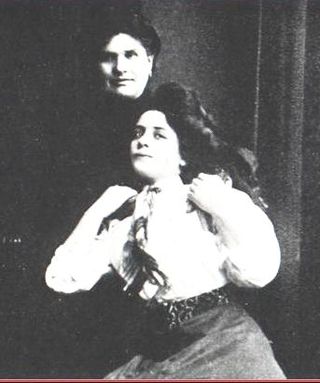
Clara Young was a Yiddish theatrical actor. Born to parents who loved the stage, she spent her early years in a home that housed rehearsals of traveling Yiddish theater troupes. After her father's death, the family went to America, where she soon joined the Tantsman company and went to Boston, there to Zolotarevski's troupe in Montreal, thence to Toronto and to Morris Finkel's theater in Philadelphia.

The National Theater was a Yiddish theater at the southwest corner of Chrystie Street and Houston Street in the Yiddish Theater District in Manhattan, New York City, United States. When first built it was leased to Boris Thomashefsky and Julius Adler. Its grand opening as the Adler-Thomashefsky National Theatre was on September 24, 1912.
The Garden Theatre was a major theater on Madison Avenue and 27th Street in Manhattan, New York City. The theatre opened on September 27, 1890, and closed in 1925. Part of the second Madison Square Garden complex, the theatre presented Broadway plays for two decades and then, as high-end theatres moved uptown to the Times Square area, became a facility for German and Yiddish theatre, motion pictures, lectures, and meetings of trade and political groups.

The Stavros Niarchos Foundation Parkway, or simply the Parkway, is a movie theater located at 5 West North Avenue in Baltimore, Maryland. The Parkway is open as of May 3, 2017, and is the new permanent home of MdFF. The Maryland Film Festival, a 5-day annual festival created and operated by MdFF, is housed in and around the Parkway and throughout the Station North Arts and Entertainment District.
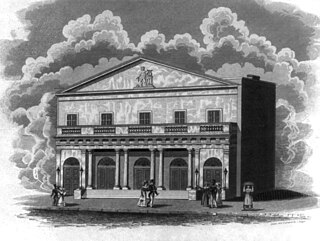
The Arch Street Theatre, popularly referred to as The Arch, was one of three Philadelphia-based theaters for plays during the 19th century; the other two were the Walnut Street Theatre and the Chestnut Street Theatre. The Arch Street Theatre opened on October 1, 1828, under the management of William B. Wood. The building's architect was John Haviland.

David Meyerowitz was a Latvian-born composer active in the early Yiddish theater. His music was oriented mainly to vaudeville and revue formats.
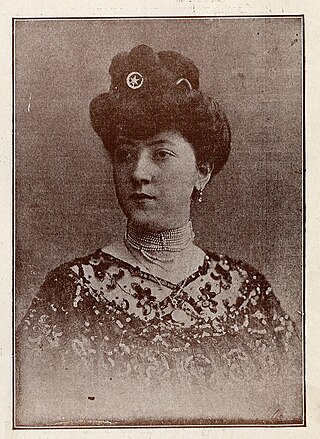
Regina Zuckerberg was an Austrian-born Yiddish theatre actor and Prima donna who had a career both in Europe and the United States.

















